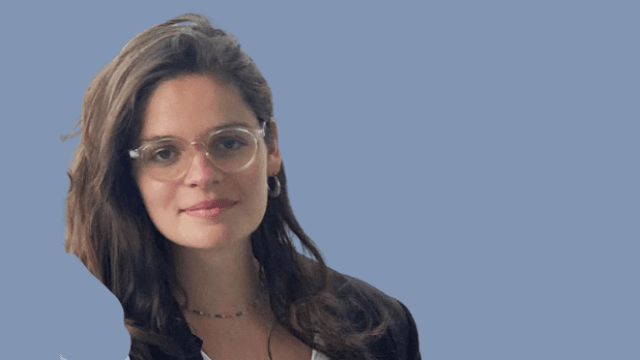Edith Turpyn commits to the Fondation ARC
Since the beginning of her higher education studies at the DER in Biology, Édith TURPYN has been drawn to associative engagement. After a sponsorship project in 2022, she decided to pursue the Specific Year of Normalien Engagement (ASPEN) in 2023 to join the Fondation ARC (Association for Cancer Research) for 9 months.
Her mission: to communicate, inform, and popularize cancer research to the general public.
I am happy to conclude this normalien diploma with an engagement that makes sense, leveraging the years of training I received at ENS Paris-Saclay.
A year for a personal engagement project
The Specific Year of Normalien Engagement (ASPEN) is a training year designed for normalien students enrolled in the Diploma at ENS Paris-Saclay. It is based on the construction of a personal engagement project, validated by the School and carried out within a hosting structure.
"Since the beginning of my higher education studies, I have been attracted to associative engagement, human contact, and also writing. During the 2021-2022 academic year, I participated in a sponsorship project in a primary school at the Neuveries School in Gif-sur-Yvette. For a month, we structured different sessions for CM1 and CM2 classes, focusing on science and particularly the microscopic world. The challenges were numerous. Creating content concrete and manual enough to interest the students, answering their questions with simple words while avoiding the pitfall of oversimplification. I was initially apprehensive about facing thirty pairs of curious eyes, but I ended up loving this experience of scientific mediation. That's why, when I learned about this new method of validating the diploma at ENS Paris-Saclay, I immediately saw it as an opportunity to embark on a path in line with these personal inclinations for my final year at the School."
Committing to the Fondation ARC
With over 460,000 new cases recorded and a standardized mortality rate of 123.72 per 100,000 in France in 2020, cancer is the leading cause of death, surpassing COVID-19. It is a major public health issue. According to figures from the National Cancer Institute (INCa) in 2022, it is estimated that in France, 3.8 million people have or have had cancer. Added to this figure are the 5 million people regularly accompanying and/or assisting someone affected by cancer. Across all ages, of the 2 to 3 people out of 100 in France suffering from cancer, nearly 60% will have long-term sequelae (VICAN-5 survey, 2018, INCa).
It is therefore essential to support cancer research, and this is the purpose of the Fondation ARC (Association for Cancer Research).
Established as a non-profit association in 1962, the Fondation ARC, based in Villejuif in the Val-de-Marne region, was recognized as a public utility 4 years later, in 1966. Over the 61 years since its inception, the Fondation ARC has tried to fulfill two main commitments through the donations and legacies it receives:
- Mission #1: to fund cancer research (prizes, grants, etc.) with the objective of curing 2 out of 3 cancers by 2025;
- Mission #2: to communicate, inform, and popularize cancer research to the general public (articles, flyers, podcasts, etc.).
Popularizing cancer research to the general public
"It is in service of this second mission that I will join the walls of the Fondation ARC for 9 months. Several responsibilities will be entrusted to me, including the dissemination of existing communication materials in the regions, writing articles on the latest cancer research for scientific mediation, or even the implementation of innovative communication materials for medical professionals and the general public."
The mission of scientific mediation and popularization with the general public, carried out by the Fondation ARC, has 4 main objectives:
- Encouraging preventive behaviors among populations: Currently, nearly 40% of cancers are attributable to environmental factors and risky behaviors (INCa). This is particularly the case with smoking, responsible for over 8 out of 10 lung cancers (Hansen et al., 2020);
- Instilling a sense of hope for patients and their families and encouraging participation in clinical trials;
- Raising more funds to finance research;
- Training medical personnel to provide better patient support.
Developing useful skills for the rest of my professional career
"This opening year will allow me to honor a commitment that is dear to me while developing skills that will be useful for the rest of my professional career, such as popularization, synthesis, and writing abilities, acquiring a comprehensive view of current cancer research, a better understanding of private funding allocation for research, and building a professional network in the field of oncology."

Comments0
Please log in to see or add a comment
Suggested Articles

